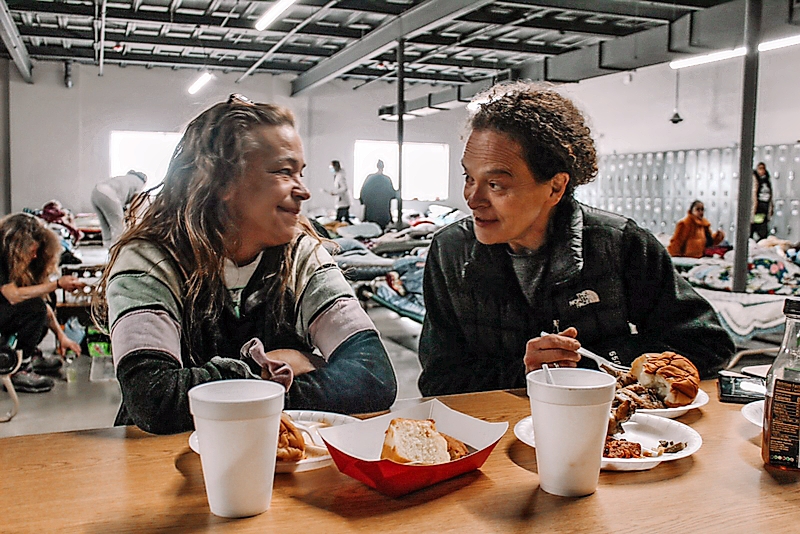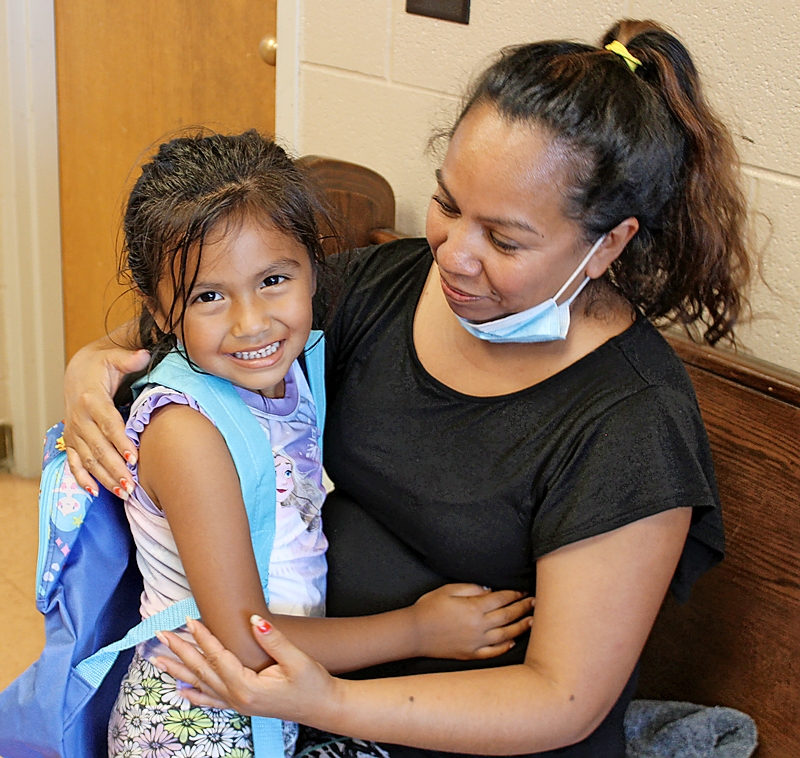Model Home
By Naperville Magazine
Appears in the March 2023 issue.
By Judy Sutton Taylor
As a template for helping the homeless nationwide, Hesed House marks 40 years serving the Fox Valley

The word “pivot” is part of the everyday language at Hesed House, the homeless shelter and social service organization based in Aurora that serves the greater Fox Valley community.

Founded by two nuns in 1983, Hesed House became an early model for PADS (Public Action to Deliver Shelter) programs, pooling together the resources of six local churches to rotate temporary shelter among them. “It was a novel idea to split the responsibilities and run a shelter mostly with volunteers,” says Joe Jackson, Hesed House’s executive director. (The Hebrew word hesed means loving kindness toward someone in need.)
The shelter evolved and grew—it’s now the second-largest homeless shelter in Illinois and the largest shelter outside the city of Chicago—and offers a host of services, including a central site with two housing programs, additional housing offerings within the community, a soup kitchen, and a food pantry. In 2010, the organization purchased a building across the street from the main shelter to open a comprehensive resource center. With the help of partner organizations, it now operates a medical clinic and offers mental health and domestic violence services, job counseling, parenting classes, legal services, a financial empowerment program, and more.
BY THE NUMBERS
Hesed House’s 2022 successes included:
• 78 people obtained employment or job training
• 204 obtained housing
• 606 received assistance for security deposits, utilities, and eviction prevention
“We depend on more than 8,000 volunteers to provide meals, help with our community housing program, and serve on projects,” says Lauren Jernigan, division director of development for Hesed House. “And we partner with roughly 90 different service organizations in the area. There’s no way we could exist without the support of our community.” Volunteer interaction helps break down stigmas, too, she adds. “Working together lessens feelings of ‘us and them’—we’re all just people,” she says.
These days Hesed House provides shelter services for about 1,000 men, women, and children each year and helps hundreds more not experience homelessness thanks to rapid rehousing and other programs.
Of course, the pandemic created a new set of challenges that Hesed House is still working to cope with, Jackson says. “COVID took a toll on everyone, but it hit impoverished people especially hard. Lots of services were shut down, and people are still trying to dig out of the pandemic hole.”

The Illinois Department of Public Health issued guidelines requiring shelters to cut capacity by roughly 60 percent during the pandemic that have remained in place, Jackson says, so the organization is working on an expansion project to convert an existing warehouse into more shelter space. “Our goal to get this done? Yesterday,” he adds.
And as proud as Jackson is of the organization’s ability to adapt to ever-growing and changing demands over the past 40 years, he says his greatest long-term goal for Hesed House is that there will be no need for an 80th anniversary. “It will take a lot, but with a multipronged approach, homelessness prevention can be accomplished,” he says. “It’s so much harder to pull someone out of homelessness than prevent it to begin with. It’s a lot cheaper to provide affordable housing than it is to run a homeless shelter.”
Interested in helping out? For information on events, volunteering, and wish-list donations, visit hesedhouse.org.
Photos courtesy of Hesed House


